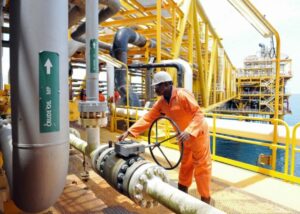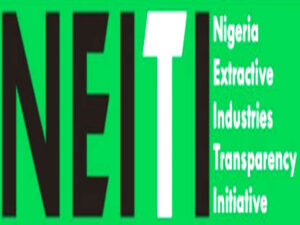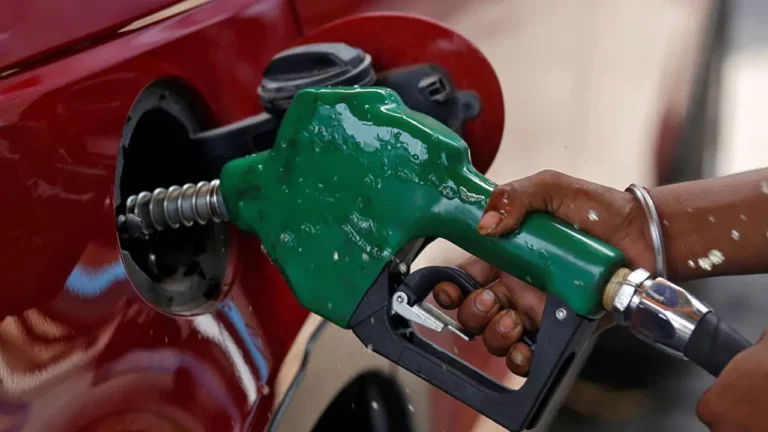Why talks collapsed – NLC
Efforts by the federal government to broker peace between the Nigeria Union of Petroleum and Natural Gas Workers (NUPENG) and the Dangote Group ended in a stalemate on Monday night, leaving the nationwide strike by oil workers unresolved.
The meeting, convened by the Minister of Labour and Employment, Muhammad Maigari Dingyadi, brought government officials, union leaders, and representatives of the Dangote Petroleum Refinery to the negotiation table in Abuja.
However, after hours of talks, no agreement was reached.
The strike, which began yesterday, is rooted in NUPENG’s accusations that the Dangote Group has adopted anti-labour practices by barring unionisation at its refinery and seeking to dominate the oil supply chain. Labour leaders insist that these actions threaten both workers’ rights and the wider economy.
Addressing reporters after the talks, Dingyadi admitted the process had broken down but expressed optimism that progress could still be made.
“We have not been able to reach a final agreement on this matter because we had a stalemate; it was getting late, so we had to call off the meeting until tomorrow. Both parties have tried to listen and cooperate to the best of their ability, but there are always issues that people cannot easily agree on. By the grace of God, tomorrow we should be able to sort them out and get both parties to agree on something that will ensure the strike is called off,” the minister said.
Speaking to journalists after the meeting, the acting general secretary of the Nigeria Labour Congress (NLC), Benson Upah, who led the NUPENG delegation, stated that the talks collapsed after the Dangote representative walked out on both the minister and the unions.
“The representative of the Dangote Refinery walked out on the Minister and organised labour, even when we bent over backwards to accommodate his uncompromising behaviour; he still did what he had to do. So we are left with no option but to do the needful; the action continues,” Upah said.
He dismissed concerns that the strike would worsen the plight of ordinary Nigerians, arguing that the union’s fight was in their interest.
“We cannot stand by and see an investor whose main purpose is to enslave Nigerians. It is unfortunate that at this point in time we are dealing with an investor whose main objective is to state that there cannot be a union in his establishment. He wants to monopolise the entire system and even dominate the workers alongside him; this we said no to,” he declared.
Talks are expected to resume today while the strike continues to disrupt petroleum distribution nationwide.
Oil Workers’ Strike Fails To Disrupt Nationwide Fuel Supply
Senior oil workers under the auspices Petroleum and Natural Gas Senior Staff Association of Nigeria (PENGASSAN) have declared their support for the ongoing strike by oil workers across the country.
The Nigeria Union of Petroleum and Natural Gas Workers (NUPENG) called the strike on Monday.
PENGASSAN’s general secretary, Lumumba Okugbawa, said yesterday that if the ongoing situation persists without a resolution, PENGASSAN will have no option but to join in shutting down the refinery operations as a last resort to protect its members’ rights and interests.
NUPENG had last week expressed reservations about the position of the chairman of Dangote Refinery, Aliko Dangote, that drivers recruited for the operation of its 4,000 Compressed Natural Gas (CNG) trucks imported into the country would not be allowed to join any trade union.
The Union described the position taken by the management of Dangote Refinery as an affront to the right to the freedom of association guaranteed under the 1999 Constitution, and a breach of relevant international labour laws to which Nigeria is a signatory.
PENGASSAN said, “We wish to put on record that Dangote Refinery management has been resisting potential members of both PENGASSAN and NUPENG from joining the Association since its inception.
“All diplomatic efforts to persuade the company’s management have not yielded the desired result. It is with deep concern that PENGASSAN observes the increasing resistance to unionisation at the Dangote Refinery. The continued denial of workers’ rights will no longer be tolerated going forward.”
Despite the strike, fuel stations in major cities such as Lagos and Abuja remained operational, providing some relief to consumers amid concerns over fuel shortages.
Industry analysts warn that if the strike persists, disruptions could escalate, potentially impacting supply chains and causing fuel scarcity outside the major urban centres.
Meanwhile, government officials are reportedly negotiating with union leaders to find a resolution and end the strike.
Petroleum dispensing outlets in Lagos operated fully, with attendants attending to motorists. There was normal traffic flow on the first day of NUPENG’s planned protest.
Our correspondent, who monitored the situation, reports that petrol tankers were seen discharging products at some filling stations, such as NorthWest in Maryland and the MRS station at Ikeja.
Motorists, especially commercial vehicle owners, operated smoothly without queuing at any filling station to buy petrol.
A national ex-officio member of the Independent Petroleum Marketers Association of Nigeria (IPMAN) Benin Depot, Comrade Douglas Iyike said he led his team to ensure IPMAN members were allowed to load products.
“I made sure our marketers all over Nigeria stood with Dangote Refinery in the interest of independent marketers and the general public.
“Today, I foiled the attempt made by petro tanker drivers (PTD) to forcefully stop marketers from selling fuel, of which security agencies are aware. They swung into action to arrest any disruption in any petrol station because IPMAN has no connection to PTD or NUPENG,” he told LEADERSHIP in a shared conversation.
Depot markers sue for industrial peace
Meanwhile, the Depot and Petroleum Products Marketers Association of Nigeria (DAPPMAN) has expressed concern at the rising tension within the downstream oil and gas industry and the possibility of an industrial action that could disrupt national petroleum supply and distribution.
“As responsible stakeholders in this vital sector of the Nigerian economy, we recognise the central importance of industrial harmony to the industry’s stability, the protection of jobs, and the sustenance of revenues accruing to the nation.
“The potential impact of any strike on ordinary Nigerians, businesses, and government finances cannot be overstated,” the Association said.
The DAPPMAN, therefore, appealed to all parties involved to exercise utmost restraint and embrace constructive dialogue as the most effective means of resolving disagreements.
In particular, the association called for the urgent intervention of the federal government in addressing the concerns of all aggrieved persons.
“We firmly believe that engagement at the roundtable will yield lasting solutions and prevent avoidable disruptions in the sector.
“Our Association’s consistent position has always been to collaborate with government, labour unions, investors, and other critical stakeholders to create a
win-win situation that sustains investment, protects workers’ rights, and guarantees an uninterrupted supply of petroleum products nationwide.
“We humbly urge all parties to sheathe their swords, avoid actions that could escalate the situation, and allow room for negotiations to address concerns fairly, balanced, and sustainably,” it said.
Fuel Scarcity Hits Yobe, Passengers Cry Out
For the meantime, fuel scarcity is gradually biting hard in Damaturu and other parts of Yobe State, with long queues resurfacing in filling stations where the product is available.
LEADERSHIP gathered that many petrol stations within the metropolis remained shut due to a lack of products.
In a few other stations where the products were available, motorists had to wait on long queues before getting fuel.
Musa Bala, a taxi driver, lamented buying a litre of petrol at the cost of N97 after spending about one hour.
“We do not know what is happening in this country, and nobody is saying anything concerning the fuel scarcity”, he lamented
*Fuel Scarcity Looms in Sokoto
Residents of Sokoto may soon face acute transportation challenges as members of the Nigeria Union of Petroleum and Natural Gas Workers (NUPENG) have begun shutting down filling stations across the state capital.
The union officials were sighted closing several petrol outlets and halting the movement of petroleum tankers along major routes and other highways linking Sokoto to neighbouring states.
Eyewitnesses reported that the officials placed leaves and barricades at strategic points, effectively disrupting the supply and distribution of fuel within the metropolis.
Though NUPENG officials declined to speak, one enforcement member, who requested anonymity, told our correspondent that “we received an instruction from our national leaders at midnight to enforce this shutdown. We are only carrying out orders.”
Some residents expressed shock and frustration at the sudden development.
A commercial tricycle operator, Bello Musa, said, “I came out early to work and found that most filling stations were closed. If this continues, transport fares will go up, and it will affect everybody. We don’t even know the reason for this strike.”
Black Market Surfaces In Delta As Oil Unions Shut Stations
Delta State is facing fuel scarcity, especially in Asaba and its environs, as oil workers belonging to IPMAN and NUPENG commenced an indefinite strike on Monday.
The strike, which began today, has caused the closure of numerous fuel stations across the state, prompting a surge in black market activities.
The development has been disrupting fuel supply in Delta State and a hike in the cost of transportation, as petroleum marketers often act in solidarity during such strikes.
Fuel stations like Rain Oil, Shafa, Matrix, and others remain closed. Desperate motorists and businesses have turned to roadside fuel retailers, selling petrol at an alarming rate of 1,800 to 2,000 per litre.
Many residents and road users are frustrated and struggling to cope with the rising costs of transportation and goods.
Workers and fuel attendants at Rain Oil by the Asaba/Benin Express road were idle and not ready to sell fuel.
One attendant, simply called David, when contacted, said he was obeying his boss’s instructions.
The decision was reached after an emergency meeting held on Saturday, September 6, 2025, where both unions resolved to shut down all filling stations across the state from 6am on Monday until further directives are issued by their national leaderships.
In a circular distributed to marketers, the unions warned that any filling station found operating during the strike would be fined ₦1 million.
Filling stations open in Kwara
As of yesterday, all the significant and independent fuel stations in Ilorin, Kwara State, were dispensing fuel.
There were no queues at the filling stations, and no adjustment had been made to the pump price of petroleum.
In Anambra State, petrol was available in virtually every filling station.
However, according to LEADERSHIP findings, the filling stations sold at different prices. While NIPCO and JEZCO filling stations, for instance, sold at N890 per litre, MRS sold at N900 per litre, and Conoil at N910 per litre.
Strike Not Observed In Imo
Fuel stations in Imo State are dispensing fuel to prospective customers, as they did not embark on the strike action by NUPENG.
A visit to the Ukoromi filling station along Orlu Road indicated that the station was busy dispensing fuel to customers.
The station manager, who spoke with LEADERSHIP anonymously, said they had yet to get a directive to suspend service.
Long queues In Port Harcourt
Fuel stations in Port Harcourt, the Rivers State capital, and its environs are still open and selling petroleum products to customers despite the nationwide strike declared by the NUPENG.
There were long queues at several fuel stations visited by LEADERSHIP within the Port Harcourt metropolis as motorists tried to purchase products.
However, our Correspondent gathered that the majority of fuel stations may not open tomorrow following the decision of the Petrol Retail Owners Association of Nigeria (PETROAN) on Tuesday.
Most of the fuel stations in Kebbi State sell N900, and N920 per litre.
Our correspondent gathered that fuel was available at A A Rano, Shafa, Asaija, Jayyas, and Oando, and there were no long queues.
In Cross River State, some petroleum stations are still selling products, while others have shut down their gates. Some stations were shut down along the Mutual Mohammed Highway in Calabar, while others were seen marketing products to motorists.
All fuel stations operated normally across Osun State when this report was being filed.
There were no records of long vehicle queues or a rise in petroleum product prices, as fuel stations sold petrol between N855 and N900 per litre.
All functioning fuel stations in Ado Ekiti, the state capital, sold the commodity to all consumers.
Prominent and independent marketers were still selling the PMS above N800 but not more than N900 per litre.
CNG Trucks: Nigerians Take To Social Media to Support For Dangote Refinery
Several Nigerians have expressed their concern over the threat of a strike by the Nigeria Union of Petroleum and Natural Gas Workers (NUPENG), just as they openly support Dangote Refinery to truck petroleum products at a cheaper rate.
Through social media, they affirmed their support for Dangote’s planned deployment of 4,000 Compressed Natural Gas (CNG)- powered trucks for fuel distribution.
NUPENG’s declaration of a nationwide strike in protest against the initiative has ignited widespread debate across digital platforms. X, Instagram, Facebook, and LinkedIn timelines are flooded with commentary, many of which favour the refinery’s move towards cleaner and more efficient fuel logistics.
For many Nigerians, this is not just a battle between a union and a private company; it is a fight over the future of fuel distribution, efficiency, and the nation’s economic direction.
Some social media users were frustrated by what they saw as decades of union dominance and disruption.
On X, @olat187 noted, Nigerians stand with @DangoteGroup. @officialNUPENG9 has been making the lives of Nigerians unbearable for years.
James O. echoed this sentiment more profoundly, stating: ‘Nigerians, the ONLY business leader and saviour we have that keeps ordinary citizens surviving is @DangoteGroup. Nigerians are fully behind you all. If they like, they should go on strike; gone are those days, Nigerians are growing beyond all this.”
Industry professionals and commentators also weighed in with sharp rebuke of NUPENG’s stance.
Prof Olushola Bamidele drew an analogy that resonated widely:
“So, if I come up with a business innovation, and it threatens your own business, you can try to force me to abandon my innovation? I sell ogbono seed in my village to middle men who take them to the city. I decide one day to buy a pick-up van so I can deliver to the customer directly in the city. Should the middle man fight me or find a way to survive? I don’t understand the logic of this impending NUPENG strike.”
Similarly, Dr. Tosan Harriman pointed out: For a very long time it is obvious @officialNUPENG9 is spoiling for war over their restricted role in the present dynamics. They don’t think about the people.”
Other social media users condemned what they viewed as manipulation and sabotage attempts.
@Joguns argued: #DangoteRefinery is a private business. Just like private universities reserve the right to join ASUU strikes, @AlikoDangote should be allowed to run his business legally and for the benefit of Nigerians.”
Tzalmon was even more suspicious, suggesting that these unions are solely focused on exploiting the people.
“I can’t help but question whether the @DangoteGroup truck accidents are orchestrated to sabotage the company.”
On Facebook, Gbenga Emmanuel opined that this is the part where @DangoteGroup should motivate some private individuals to invest in filling stations that will be loyal to it across the country, since @officialNUPENG9 and @PETROAN are moving crazy.
The larger concern about foreign influence also surfaced in the debate.
Ebere Anosike observed that it seems the NLC and NUPENG are being used to sabotage Dangote Refinery and thus Nigeria’s economy to save Western refineries that are worrying about declining fuel imports.
“The more worrying aspect is NUPENG workers might not even know they’re being used by unseen hands controlling their top officials. A serious country would quickly investigate them for possible economic treason.”
On Instagram, Adesuyi bluntly remarked in pidgin, “For years @officialNUPENG9 don show Nigerians shege. Now that there’s competition they can’t withstand it. Anyway Nigerians will stand with @DangoteGroup.
Tech-driven voices on X also chimed in, with @NaijaLogistics saying, ‘Union should not hold the country to ransom. Dangote’s game is innovation. Let’s embrace progress, not protest.”
One LinkedIn user said, “Disruptive? Yes. But anything revolutionary faces resistance. What Dangote is doing will be studied in business schools around the world.”





